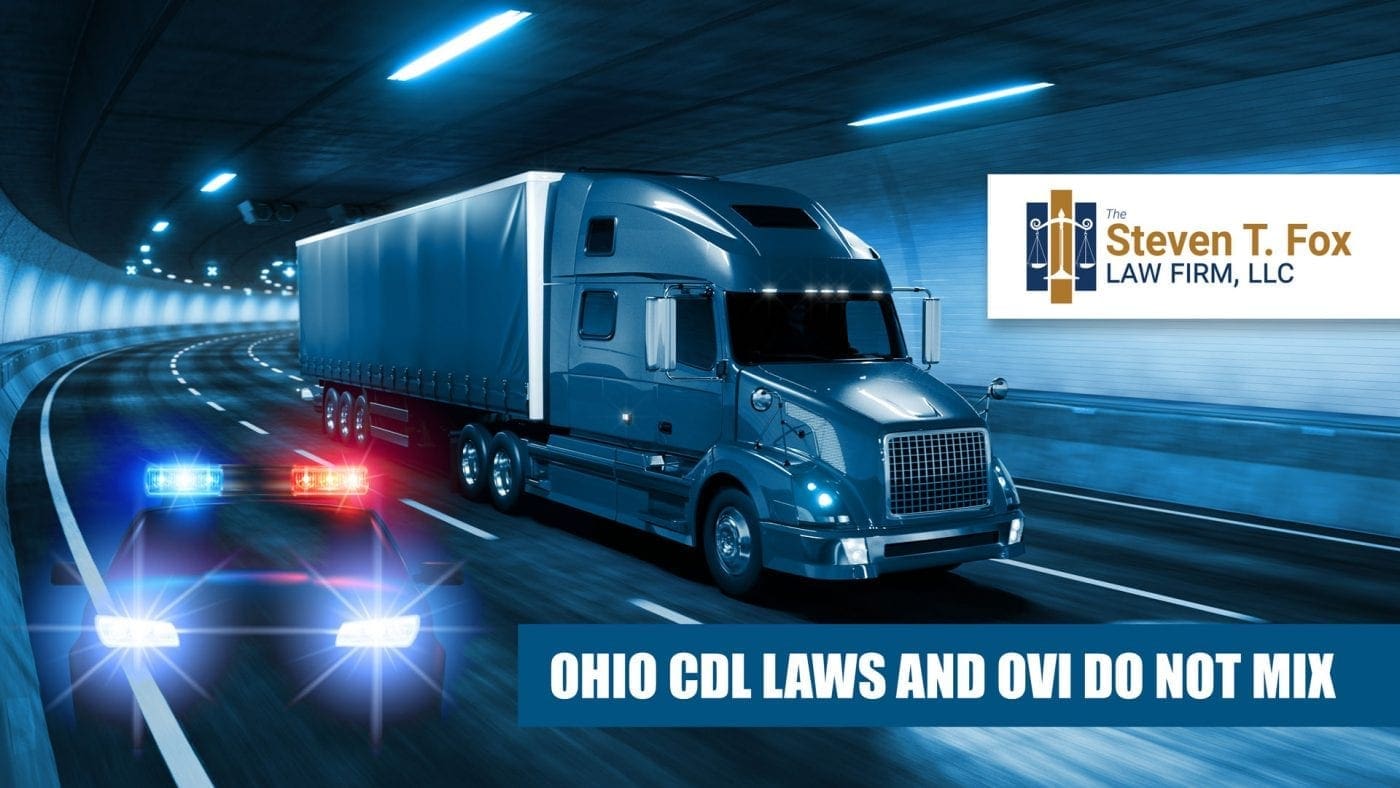Ohio CDL Laws and OVI Do not Mix. Commercial Drivers Beware:If you are an Ohio CDL operator, do not drink and drive. Period.
Even if you are not “drunk”, “high” or “loaded”, Ohio’s BMV can, and will, disqualify a CDL driver who is alleged to have consumed alcohol and/or drugs of abuse. Ohio CDL Laws and OVI Do not Mix. Ohio Law mandates a CDL holder is to be disqualified from operating a commercial vehicle upon a conviction for OVI and/or being charged with an administrative license suspension (ALS) pursuant to Ohio’s implied consent laws pursuant to Ohio Revised Code (ORC) §4506.15, ORC §4506.16 and ORC §4506.17.
Unfortunately, disqualification can result regardless of whether the CDL holder was driving a personal vehicle or commercial vehicle at the time of the alleged violation. Upon a first suspension imposed under Ohio’s general Implied Consent law (ORC §4511.191 or ORC §4506.17), or a similar law of another state or foreign jurisdiction, the period of disqualification is one year. Upon a second suspension imposed under Ohio’s general Implied Consent law, or a similar law of another state or foreign jurisdiction, the period of disqualification is life or any other period of time as determined by the United States Secretary of Transportation and designated by the Director of Public Safety by rule. Based upon further provisions in the CDL statute, these disqualification periods appear to apply to OVI convictions as well (ORC §4506.16 and ORC §4511.19). Furthermore, if the CDL operator has any measurable or detectable amount of alcohol in their system, they will be subjected to a 24-hour “out-of-service” disqualification.
Since OVIs and ALS suspensions can have such dire consequences for a driver’s CDL, it is imperative to challenge the OVI and/or ALS in the trial court. By avoiding an OVI conviction and/or ALS, a CDL holder will possibly be able to circumvent the potential subsequent CDL disqualification process, thereby saving one’s ability to continue to operate a commercial vehicle. That means successfully fighting the case on the trial level. Unfortunately, if the case is not successfully defended on the trial level, the only possible respite would be to take the much more tenuous road of challenging the disqualification at the administrative hearing level. Having said that, the easiest way to avoid a CDL disqualification is to avoid the administrative process outright.
If a challenge is unsuccessful at the trial level, the driver has another avenue available to challenge the BMV’s disqualification determination. Pursuant to ORC §4506.16, the Ohio BMV must notify a disqualified driver of the length of disqualification and advise the driver of their right to appeal. The disqualified operator may then request an administrative appeal hearing, but must do so within thirty days of the mailing of the notice to show cause why the driver should not be disqualified from operating a commercial motor vehicle. If a request for such a hearing is not made within thirty days of the mailing of the notice, the order of disqualification is final.
Upon receipt of the request for hearing, the BMV will schedule a hearing before an attorney hearing examiner. The BMV will stay (postpone) the start of the disqualification until a final decision is issued. After the hearing, the hearing examiner will issue a Report and Recommendation. The driver has ten (10) days to file Objections to the Report and Recommendation. After the ten days are up, the BMV will issue a final order. If the driver disagrees with the BMV’s final order, the driver may then file an appeal to the Court of Common Pleas in the county where the driver lives by filing Notices of Appeal with both the BMV and the Court of Common Pleas.


